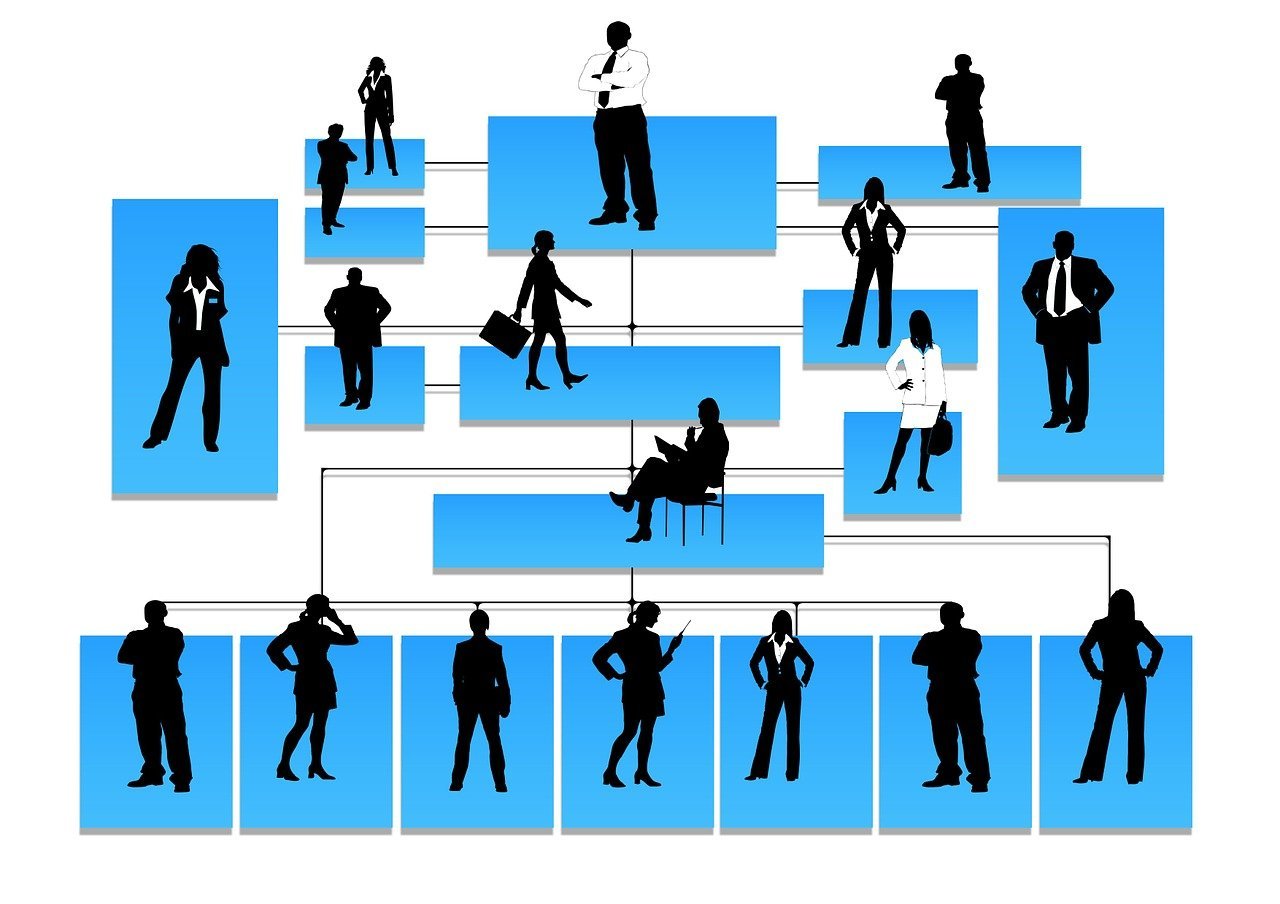Food and Beverage Hierarchy and Operations
When you step into a restaurant or a hotel, you may not realize the work behind the food and beverage department. U must understand that this department is responsible for providing guests with an exceptional dining experience. To make this happen, a well-defined hierarchy and efficient operations are essential. In this post, we will go through the food and beverage hierarchy, their operations and explore all the other details.
The Food and Beverage Hierarchy
The food and beverage hierarchy is made up of different positions, each playing an important role in the smooth functioning of the department. We will divide the team into the Culinary or kitchen team and the service team in which both groups belong to the Food and Beverages Department. Let’s take a closer look at these roles:
Culinary / Kitchen Team Hierarchy
Executive Chef
In some hotels, the restaurant and kitchen are differentiated, with the Kitchen sub-department may operate outside the Food and Beverage Department, and the Executive Chef directly reporting to the General Manager instead. Anyhow, in our case, the executive chef is at the top of the hierarchy. This highly skilled individual is responsible for overseeing the entire kitchen operation. They develop menus, ensure food quality, manage kitchen staff, and maintain high standards of hygiene and safety.
Head Chef (Chef de Cuisine)
The head chef would at the top of the pyramid in culinary without the need of an executive. As the head chef, he is responsible for overseeing the entire kitchen operation. This includes menu planning, ingredient sourcing, and managing a team of cooks and kitchen staff. The head chef must ensure that all food is prepared to the highest standards and that the kitchen complies with health and safety regulations. Another crucial aspect of the head chef role is maintaining inventory and controlling food costs. You need to keep track of stock levels, order supplies in a timely manner, and minimize waste. This requires strong organizational and budgeting skills.
Sous Chef
Reporting to the e head chef or executive chef, the sous chef assists in menu planning, recipe development, and food preparation. He supervise the kitchen staff and ensure that dishes are prepared to perfection. The sous chef also steps in to manage the kitchen in the absence of the executive chef.
Chef de Partie
Under the guidance of the sous chef, chef de partie takes charge of specific sections in the kitchen, such as sauté, grill, or pastry. He is responsible for preparing dishes assigned to their section, ensuring consistency, and maintaining quality standards.
Commis Chef
The commis chef is an entry-level role in the kitchen hierarchy. They assist the chef de partie and gain practical experience in various kitchen operations. Commis chefs carry out basic food preparation tasks and learn the skills required to advance in their culinary career.
These are the 5 main roles in the culinary team as per The Food And Beverages Hierarchy. Let’s not forget to mention as well the Stewards. Stewarding team is the bridge between the culinary, service and the restaurant. They are the one responsible of maintaining of all cutleries, dinning areas and kitchen so they fulfill health and safety standards. Chief Steward is the one responsible of this department and he reports to Executive Chef or Food & Beverage Director, depending on the hotel.
Service Team Hierarchy
Food and Beverage Director
Food and Beverage Director remains at the top of the Hierarchy in the Food & Beverages Department. He reports to the Director of the Operations or the Hotel Manager. He oversees and manage the hotel’s restaurants, bars, and banquet facilities operation and works very closely with the Executive chef for developing menus and making sure that a very good quality of food and service is provided to guests.
Food and Beverage Manager
At this level, the food and beverage manager oversees the entire department. He is responsible for budgeting, menu planning, staff training, and ensuring customer satisfaction. The food and beverage manager also coordinates with other departments to ensure a seamless dining experience for guests. Food & Beverages Manager reports directly to Food & Beverages Director.
Banquet Manager
The banquet manager primary responsibility is to oversee and coordinate all aspects of banquet and catering events. This includes planning and organizing events, managing staff, and ensuring a seamless execution of each event. He will work closely with clients to understand their needs and preferences, and then translate those into a memorable experience for their guests. The banquet manager must be able to multitask and thrive in a fast-paced environment, as banquet and catering events often have tight timelines and multiple moving parts.
Restaurant and Bar Managers (Outlet Managers)
The primary role of a restaurant and bar manager is to oversee the daily operations of the establishment. This includes managing staff, ensuring customer satisfaction, and maintaining a high standard of service. A successful manager must be able to multitask, problem-solve, and maintain a positive attitude in a fast-paced environment. He is in charge of hiring and training new employees, creating work schedules, and ensuring that all staff members are following proper procedures and protocols. They report to the Food and Beverages Manager or Director.
Restaurant and Bar Supervisors
A restaurant and bar supervisor is responsible for overseeing the daily operations of a restaurant or bar. They manage and train staff, ensure customer satisfaction, and maintain quality standards. This role requires excellent communication and leadership skills.
Servers and Bartenders
Servers and bartenders are the face of the food and beverage department. They interact directly with guests, take orders, serve food and beverages, and provide recommendations. Their role is crucial in delivering excellent customer service and creating a positive dining atmosphere.
Food and BEVERAGE operations
The operations in the food and beverage department involve several key processes. Let’s explore some of these operations:
- 1. Menu Planning
Menu planning is a collaborative effort involving the executive chef, sous chef, and food and beverage manager. They consider factors like seasonal availability, customer preferences, and cost-effectiveness while designing a menu that offers a variety of enticing options.
- 2. Purchasing and Inventory Management
The food and beverage department is responsible for procuring high-quality ingredients and managing inventory effectively. This includes establishing relationships with suppliers, conducting regular quality checks, and optimizing stock levels to avoid wastage.
- 3. Food Preparation and Presentation
Food preparation involves various techniques, from basic chopping and cooking to intricate plating and garnishing. The kitchen staff ensures that dishes are prepared to perfection and presented attractively to enhance the dining experience.
- 4. Service and Customer Interaction
Efficient service is crucial in the food and beverage department. Servers and bartenders must be knowledgeable about the menu, attentive to guests’ needs, and capable of handling any requests or concerns promptly. They strive to create a welcoming and comfortable environment for guests.
- 5. Hygiene and Safety
Maintaining high standards of hygiene and safety is paramount in the food and beverage department. Strict protocols are followed to ensure that food is prepared and served in a clean and safe environment. Regular inspections and training sessions are conducted to uphold these standards
Food and Beverage Department plays a vital role in the smooth functioning of a hospitality establishment. The food and beverage hierarchy and operations are vital in providing guests with a memorable dining experience. From the executive chef to the servers, each role contributes to the smooth functioning of the department. By understanding the hierarchy and operations, we gain insight into the meticulous planning and execution required to deliver exceptional food and service. Almost all of the 5 star Luxury Hotels, have and follow the same Food and Beverage Hierarchy and Operations.
Featured image from Pixabay (Free Commercial Use)



Very informative
Hi, its nice piece of writing on the topic off media print,
we all be familiar with media is a wonderful source of facts.
Please let me know if you’re looking for a writer for your blog.
You have some really good articles and I thin I would be a good asset.
Hi to every one, it’s in fact a fastidious
That is an extremely smartly
written article. I will make sure to bookmark it and
come back to read extra of your helpful info.
Thanks for the post. I
This is a topic which is near to my heart… Cheers! Where
are your contact details though?
You have made some decent points there. I checked on the internet for additional information about the issue and found most
people will go along with your views on this web site.
Good day! I just want to give you a big thumbs up for your great
information you have here on this post. I am coming back
to your website for more soon.
Hi there, I enjoy reading through your article. I wanted to write a little comment to support you.
This piece of writing is actually a nice one it assists new internet visitors, who are wishing for blogging.
Great article when it comes to the hierarchy of FB. Keep on working, great job!